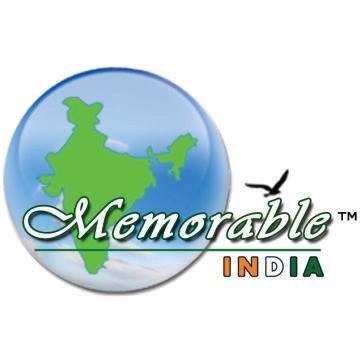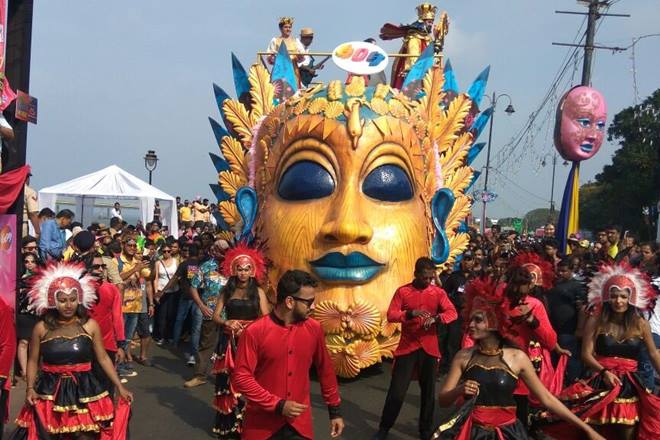Events
Goa, the smallest Indian state (in area) is famous for its 3 ‘S’s -Sea, Sun and Sand.
Some of the most famous beaches of Goa are Calangute Beach, Colva beach, and the Dona Paula beach. With almost 35% of the Goan population being Christian, Goa also boasts some magnificent churches, like the Se Cathedral and Basilica of Bom Jesus, Church of Our Lady of Rosary and the Rachol Seminary. Â However if you love to shop, places like the Anjuna market, Calangute market square, Mapusa market, and the Baga beach have a lot to offer from brassware to terracota, from jewellery to shell items!
The best time to visit Goa is in February, not only is it the best time for shopping but also is a great chance to be a part of the Goa Carnival.
BRIEF HISTORY OF GOA
The annexation of Goa into the Indian Union happened in1961 as a result of Operation Vijay carried out by the Indian Army. The Portuguese ruled over Goa for over 500 years by defeating Bijapur kings in 1510. Their capital was Velha Goa(old Goa) initially and later Panajim was made the capital. The Portugal influence is evident in the architecture and also in the lifestyle. Present day Goa is mainly divided into Old Goa and New Goa.
HISTORY OF THE CARNIVAL
During the Portuguese rule, King Rei Momo introduced the Goa carnival where he ordered his subjects and residents to party. The Goa carnival saw a decline when the Portuguese rule came to an end but soon the tradition was revived to attract tourists. The carnival is held in February between Sabado Gordo (Fat Saturday) and Shrove Tuesday( Fat Tuesday). The Latin word for carnival, “Carnelevarium†means farewell to meat and hence the Goa carnival is held before the austere 40 days of lent. Lent is period in the Christian calendar where fasting is done. Therefore the carnival is a feasting time before the fast commences. Initially the carnival was celebrated by Christians but over the time all cultures and religions have joined to add to the festivities. Though started by the Portuguese and Spanish, the origins of carnival celebrations lie in the hedonistic pleasures enjoyed in Greece and Rome. The highlights of this three day carnival are dancing, singing, the red and black ball, parades, face painting, the merriment and feasting.
During the carnival the streets of Goa are decorated with streamers and colourful ribbons entwined in a way to create a mystical feel. The lavish floats representing different themes, bands playing a blend of pop, Goan and western music, dancers and face painters add a new dimension to the celebrations. The aura of this extravagant carnival fills the streets of Goa with a great amount of zeal and zest.

King Momo on a Float – Goa Carnival
Image Credits: joegoauk36
CARNIVAL EVENTS
Firstly all the spectators of the carnival are welcomed by face painters and dancers with soothing music played in the background. The carnival is then announced open by an elected King of Chaos or King Momo who resides over the carnival and enters with his troupe in the first float. This is followed by other floats depicting various traditions and cultures, street plays, music, etc. The evenings are reserved for bands playing great music, DJ’s and dancing balls and the fireworks surely make carnival nights sparkle. The great red-and-black ball marks the end of the carnival and is hosted by the Club National, Panajim. The well decorated buffet and bar serving various cuisines are for all the food lovers. A ‘mell’-group of village dancers dancing to the energetic beats of the drums around an oil lamp in a circle is a common scene that one can capture in the rural areas. Â The event also brings with it several activities and competitions and the winners of these are awarded on the final day of the carnival. A special prize is also given to the best decorated float in the carnival. The prize distribution is done by the elected King Momo.

Dance, Music, Joy and Colourful Parades – Goa Carnival
CARNIVAL IN 2019
The carnival in 2019 will be celebrated from 2nd March to 5th March and the will start from Panajim. The theme selected for this year’s carnival is Celebrities ensuring a fun-filled carnival with a twist of cinematic experience. The carnival is sure to provide a sneak-peak into Hollywood, electronic dance and a new musical experience. The spectators will be surrounded by glitz and glamour that stars experience.
CARNIVAL IN 2010 AND 2011
In 2010 the carnival was held between 13th February and 16th February. The Chief Minister, Digambar Kamat and Tourism Minister, Francisco Xavier Pacheco flagged off the carnival. The speciality of the carnival was the “Gorilla Wedding†float where a marriage reception was thoroughly enjoyed by gorillas. The Goenche Xetkami float from St. Estevam was one of a kind. This was followed by a group of children dressed as Michael Jackson, Elvis Presley, etc and group of adults dressed as Vampires, Roman warriors. The traditional Colva float along with 95 tableaux supporting sustainable development and environment protection were also well appreciated. Stars like Aditya Pancholi, Mahesh Manjerekar, Isha Kopikar, Akshada Bandekar were seen enjoying the parade in the port town of Vasco. About 80 floats including Makdachem Kazar, a float by Chinchinim villagers and Goenche Chamar were seen in Margao. In Mapusa a participation of 61 floats was recorded and the carnival was wound up at the Bodgeshwar ground.

Goa Carnival Dishes – Goa Carnival
In 2011, the carnival filled every part of Goa with fun and frolic. The carnival was held in between 5th March and 8th March. It was known as Viva Goa Carnival! The year 2011 saw floats encouraging sustainable development showing a concern to save the environment to have a better and brighter future. A float called a Genche Sapateir was also seen. Actress Mahima Choudary was also a spectator among the other spectators from around the globe. A dine and dance on the Santa Monica boat was arranged by Goa Tourism Development Corporation. The Samba music and dance and the masquerade by the locals was the major attraction of the evening. The multi-talented performer Cezar D’Mllo entertained the crowd by enacting King Momo. The food stalls attracted many food lovers and the decorations of the carnival were completely magical.
The Goa carnival is the only carnival in India. This Goan carnival is an embedded part of the Goan culture and tradition which not only attracts the locals but also tourists from every corner of the world.

